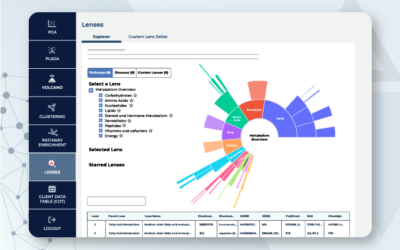The Genome is Insufficient for Clinical Evaluation of Most Complex Diseases
Since the sequencing of the first complete human genome in 2003, efforts have focused on understanding the contributions of inherited variation of the DNA sequences to health and disease. The genome of millions of individuals has been sequenced over the past twenty years as part of genome-wide association (GWAS) studies to discover genetic markers associated with a specific phenotype and/or risk of disease. These genetic markers are the primary source of genetic variance in individuals within a population and are called single nucleotide polymorphism (SNPs) or copy number variants (CNVs).1,2
Except for classical single-gene disorders (e.g., cystic fibrosis, Huntington’s disease, Duchenne muscular dystrophy, sickle cell anemia, etc.), the most common diseases affecting large populations (e.g., hypertension, heart disease, diabetes, cancer, neurological diseases, etc.) are multifactorial: they involve the influence of many genes impacting multiple biological pathways in the disease onset, progression, and outcomes. Causal SNPs in each of the genes contribute marginally to a specific causal phenotype, creating a cumulative effect associating the SNPs with disease etiology. The cumulative effect of SNPs has led to the design of polygenic risk scores (PRS) for the prediction of an individual’s risk for a clinical phenotype.3-5 Unfortunately, PRS have been associated with poor performance in population screening, risk stratification, and individual risk prediction.6,7 The multifactorial quality of diseases has limited the performance and utility of using genomic profiling alone for clinical decision support.
Metabolites for Non-invasive Screening and Diagnosis
Metabolomics studies the metabolome, the collection of small molecule metabolites, typically less than 1,500 daltons, that are the products of biological processes. Comprehensive profiling of the metabolome at any given time represents the cumulative integrated contributions of genetic and all non-genetic factors to biological outcomes, i.e., the phenotype. Metabolites are most often measured in readily accessible body fluids such as blood (plasma/serum), urine, saliva, cerebrospinal fluid, cells, tissues, and other relevant sample types, making it an ideal medium for discovering and validating potential biomarkers. This is highlighted by the routine use of clinical chemistry-based monitoring of small molecules such as glucose, creatinine, blood urea nitrogen, lipids, and other metabolites in body fluids like blood and urine; deviations of the levels of these molecules from an established healthy reference range are used to support clinical decisions. Thus, establishing a broad metabolite library of healthy reference ranges provides an opportunity to improve the potential utility of metabolite panels for screening and diagnosis.
Metabogenomic Analysis Can Improve Clinical Decision Support
Over the last decade, metabolomic profiling in large population cohorts, combined with genomic data, has been instrumental in the identification and validation of gene-metabolite linkages in health and disease. Thus, Metabolon’s Metabogenomics™ can help provide valuable insights into associations between gene-specific SNPs, corresponding metabolic phenotypes, elucidation of biochemical pathways, the significance of allele-specific SNPs to metabolic capacities, and potential insights into disease causality.8-12
Metabolon’s Metabogenomics™ enables integration of metabolomics and genomics data for the discovery and validation of metabolite-gene linkage, providing insights into the relationship between the presence of genomic variants and the measurable alterations in metabolites within biochemical pathways. This metabolite-gene relationship enables the cataloging of genetically determined metabotypes for potential utility in screening, risk prediction, stratification, and mechanistic insights into disease causality.
The combination of gene-metabolite-linked phenotypic information from Metabolon’s Metabogenomics™ provides a unique opportunity to develop tools to find, test, and validate biomarkers that will significantly improve the ability to screen, predict risk, and stratify patients in ways that support decisions in the clinic.
References
- Uffelmann E, Huang QQ, Munung NS, et al. Genome-wide association studies. Nature Reviews Methods Primers. 2021;1(1):59.
- Crouch DJ, Bodmer WF. Polygenic inheritance, GWAS, polygenic risk scores, and the search for functional variants. Proceedings of the National Academy of Sciences. 2020;117(32):18924-18933.
- Cano-Gamez E, Trynka G. From GWAS to function: using functional genomics to identify the mechanisms underlying complex diseases. Frontiers in genetics. 2020;11:424.
- Choi SW, Mak TS-H, O’Reilly PF. Tutorial: a guide to performing polygenic risk score analyses. Nature protocols. 2020;15(9):2759-2772.
- Lewis CM, Vassos E. Polygenic risk scores: from research tools to clinical instruments. Genome medicine. 2020;12(1):1-11.
- Hingorani AD, Gratton J, Finan C, et al. Performance of polygenic risk scores in screening, prediction, and risk stratification: secondary analysis of data in the Polygenic Score Catalog. BMJ medicine. 2023;2(1)
- Wald NJ, Old R. The illusion of polygenic disease risk prediction. Genetics in Medicine. 2019;21(8):1705-1707.
- Shin S-Y, Fauman EB, Petersen A-K, et al. An atlas of genetic influences on human blood metabolites. Nature genetics. 2014;46(6):543-550.
- Long T, Hicks M, Yu H-C, et al. Whole-genome sequencing identifies common-to-rare variants associated with human blood metabolites. Nature genetics. 2017;49(4):568-578.
- Schlosser P, Li Y, Sekula P, et al. Genetic studies of urinary metabolites illuminate mechanisms of detoxification and excretion in humans. Nature genetics. 2020;52(2):167-176.
- Chen Y, Lu T, Pettersson-Kymmer U, et al. Genomic atlas of the plasma metabolome prioritizes metabolites implicated in human diseases. Nature Genetics. 2023;55(1):44-53.
- Surendran P, Stewart ID, Au Yeung VP, et al. Rare and common genetic determinants of metabolic individuality and their effects on human health. Nature Medicine. 2022;28(11):2321-2332.






